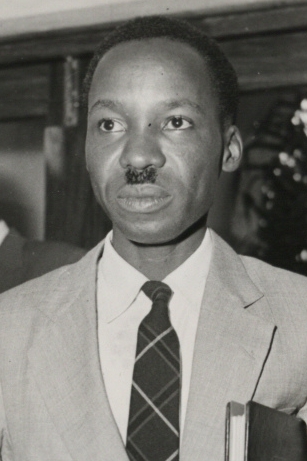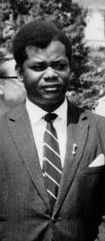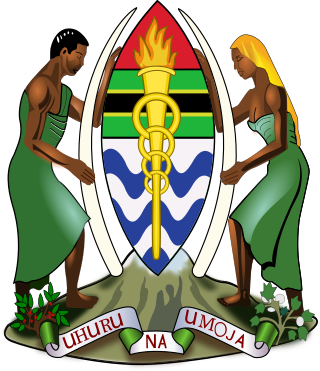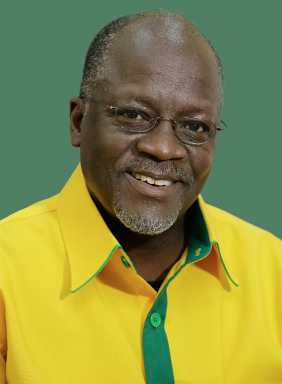
Dar es Salaam is the largest city and financial hub of Tanzania. It is also the capital of the Dar es Salaam Region. With a population of over five million people, Dar es Salaam is the largest city in East Africa by Population and the sixth-largest in Africa. Located on the Swahili coast, Dar es Salaam is an important economic center and one of the fastest-growing cities in the world.

Tanzania, officially the United Republic of Tanzania, is a country in East Africa within the African Great Lakes region. It is bordered by Uganda to the northwest; Kenya to the northeast; the Indian Ocean to the east; Mozambique and Malawi to the south; Zambia to the southwest; and Rwanda, Burundi, and the Democratic Republic of the Congo to the west. Mount Kilimanjaro, Africa's highest mountain, is in northeastern Tanzania. According to the 2022 national census, Tanzania has a population of around 62 million, making it the most populous country located entirely south of the equator.
The modern-day African Great Lakes state of Tanzania dates formally from 1964, when it was formed out of the union of the much larger mainland territory of Tanganyika and the coastal archipelago of Zanzibar. The former was a colony and part of German East Africa from the 1880s to 1919 when, under the League of Nations, it became a British mandate. It served as a British military outpost during World War II, providing financial help, munitions, and soldiers. In 1947, Tanganyika became a United Nations Trust Territory under British administration, a status it kept until its independence in 1961. The island of Zanzibar thrived as a trading hub, successively controlled by the Portuguese, the Sultanate of Oman, and then as a British protectorate by the end of the nineteenth century.

Rashidi Mfaume Kawawa was a Tanzanian politician who was the second Tanganyikan prime minister from 22 January 1962 to 9 December 1962 and the first Tanzanian prime minister from 17 February 1972 until 13 February 1977, succeeded by Edward Sokoine.
Edward Moringe Sokoine was a Tanzanian politician who served two terms as Prime Minister of Tanzania, from 13 February 1977 to 7 November 1980 and again from 24 February 1983 to 12 April 1984.

Ujamaa was a socialist ideology that formed the basis of Julius Nyerere's social and economic development policies in Tanzania after it gained independence from Britain in 1961.

Benjamin Mkapa Stadium also known as Tanzania National Main Stadium is a multi-purpose stadium located in Miburani ward of Temeke District in Dar es Salaam, Tanzania. It opened in 2007 and was built adjacent to Uhuru Stadium, the former national stadium. It hosts major football matches such as the Tanzanian Premier League and home matches of the Tanzania national football team.
Godfrey Mwakikagile is a Tanzanian scholar and author specialising in African studies. He was also a news reporter for The Standard — the oldest and largest English newspaper in Tanzania and one of the three largest in East Africa. Mwakikagile wrote Nyerere and Africa: End of an Era — a biographical book on the life of former Tanzanian President Julius Nyerere set in the backdrop of Africa's early post-colonial years and the liberation wars in the countries of southern Africa in which Nyerere played a major role.

Oscar Salathiel Kambona was the first Minister of Foreign Affairs of Tanganyika from 1963 to 1966.

Elizabeth II was Queen of Tanganyika from 1961 to 1962, when Tanganyika was an independent sovereign state and a constitutional monarchy. She was also the monarch of other sovereign states, including the United Kingdom. Her constitutional roles in Tanganyika were mostly delegated to the governor-general of Tanganyika.

John Pombe Joseph Magufuli was the fifth president of Tanzania, serving from 2015 until his death in 2021. He served as Minister of Works, Transport and Communications from 2000 to 2005 and 2010 to 2015 and was chairman of the Southern African Development Community from 2019 to 2020.

The Embassy of the United States of America in Dar es Salaam is the diplomatic mission of the United States in Tanzania.
General elections were held in Tanzania on 25 October 2015. Voters elected the president, members of Parliament, and local government councillors. By convention, the election was held on the last Sunday of October and was supervised by the National Electoral Commission (NEC). Political campaigns commenced on 22 August and ceased a day before the elections.

Tanzania–United Kingdom relations are bilateral relations between Tanzania and the United Kingdom. The United Kingdom has historically been a partner of Tanzania in many areas, particularly trade and security.

Bibi Titi Mohammed was a Tanzanian politician and activist. She was born in June 1926 in Dar es Salaam, at the time the capital of former Tanganyika. She first was considered a freedom fighter and supported the first president of Tanzania, Julius Nyerere. Bibi Titi Mohammed was a member of the Tanganyika African National Union (TANU), the party that fought for the independence of Tanzania, and held various ministerial positions. In October 1969, she was sentenced for treason, and, after two years in prison, received a presidential pardon.
Austin Shaba was one of the leaders of Tanganyika, later Tanzania, from the time the country won independence from Britain on 9 December 1961.
Rosemary Nyerere was a Tanzanian politician and academic. She was a daughter of the late Mwalimu Julius Nyerere, the founder and first president of the United Republic of Tanzania.
Events of 2021 in Tanzania.

John Magufuli, the 5th President of Tanzania, died on 17 March 2021 following a prolonged illness. He was the first Tanzanian president to die in office. Prior to his death, rumours speculated that he had contracted COVID-19 following months of denial during the ongoing pandemic.












